Home Safety for Older Adults: Creating a Safe and Comfortable Living Environment
By Jessa Blackburn, BScN RN
The Importance of Home Safety
Why is home safety so important? According to the Public Health Agency of Canada (2021), approximately half of all falls that lead to hospitalization among seniors occur at home. The bathroom and stairs are particularly hazardous due to the risk of slipping, tripping, and stumbling. Falls are the leading cause of injuries among Canadians aged 65 and over, with 20% to 30% of community-dwelling seniors experiencing at least one fall each year.
Changes that come with aging—such as declining vision, hearing, balance, and bone density—can increase the risk of injury. Moreover, as we age, our bodies take longer to heal from injuries, making falls and accidents more dangerous. The good news is that with a few simple home modifications and safety precautions, you can significantly reduce your risk of injury.
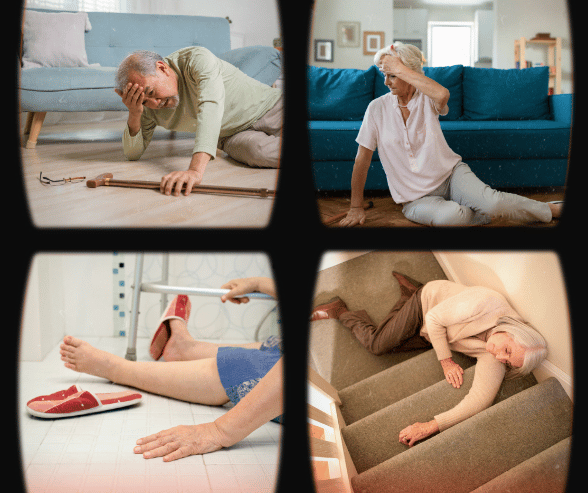
Home Safety Starts Outside: Ensure Safe Entrances
Home safety begins before you even step inside. Consider the following to create a safe outdoor environment:
Proper Lighting: Ensure all entrances are well-lit to avoid accidents after dark. Lighting is crucial for visibility, especially in areas with stairs or uneven surfaces.
Pathways and Railings: Outdoor stairs, decks, and pathways should have sturdy railings and textured surfaces to prevent slips. Ensure that these areas are clear of clutter, snow, or leaves that could create a tripping hazard.
Clear Walkways: Ensure walkways are in good condition, free of cracks, and easy to navigate. Also, make sure your mailbox is easily accessible, and your house number is visible and well-lit at night.
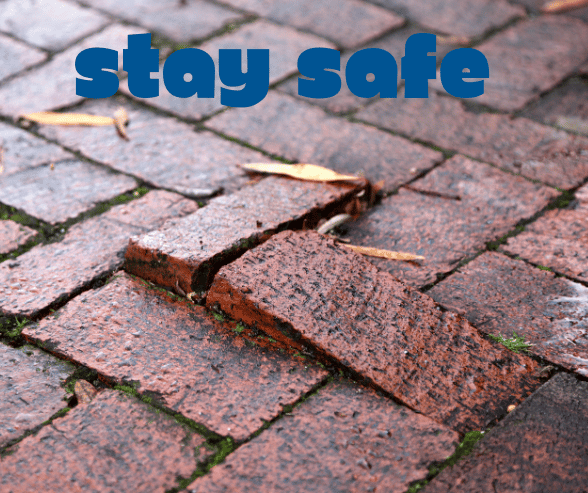
Step Inside: Fall Prevention Indoors
Once inside, there are several key areas to focus on to prevent falls:
Clear Clutter: Keep floors, stairs, and hallways free of obstacles such as cords, rugs, or furniture that could cause tripping.
Non-Slip Mats: Place non-slip mats or rugs, especially in the bathroom or kitchen, to prevent slipping on wet or slick surfaces.
Handrails and Grab Bars: Install sturdy handrails or grab bars in areas like bathrooms, hallways, and stairs to provide extra support.
Adequate Lighting: Ensure that all areas of the home are well-lit, especially stairs and hallways. Consider using night lights in bathrooms and hallways to help with nighttime navigation.
Stair Safety: Make sure stairs are well-lit and equipped with sturdy handrails on both sides for additional support.
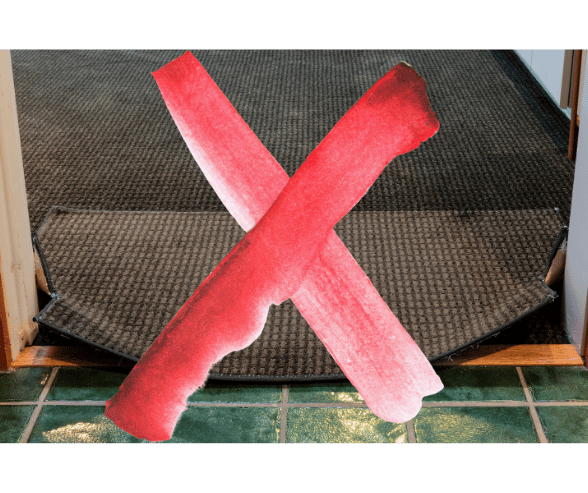
Security and Emergency Preparedness
Being prepared for emergencies is key to maintaining home safety. Consider these steps:
Emergency Contacts: Keep a list of emergency contact numbers easily accessible, such as by the phone or on a mobile device.
Medical Alerts: Wearing a medical alert bracelet or necklace can be a lifesaver in case of a fall or emergency.
Home Security: Installing a security system or camera can provide peace of mind and ensure your home is monitored for safety. Additionally, ensure that all doors and windows have working locks. Sharing a key with a trusted neighbour or friend can offer added security.
Smart Technology: Technological advancements, such as motion sensors, automatic lighting, and fall detection systems, can improve home safety. For example, an Apple Watch with fall detection can alert caregivers or emergency services if an incident occurs.
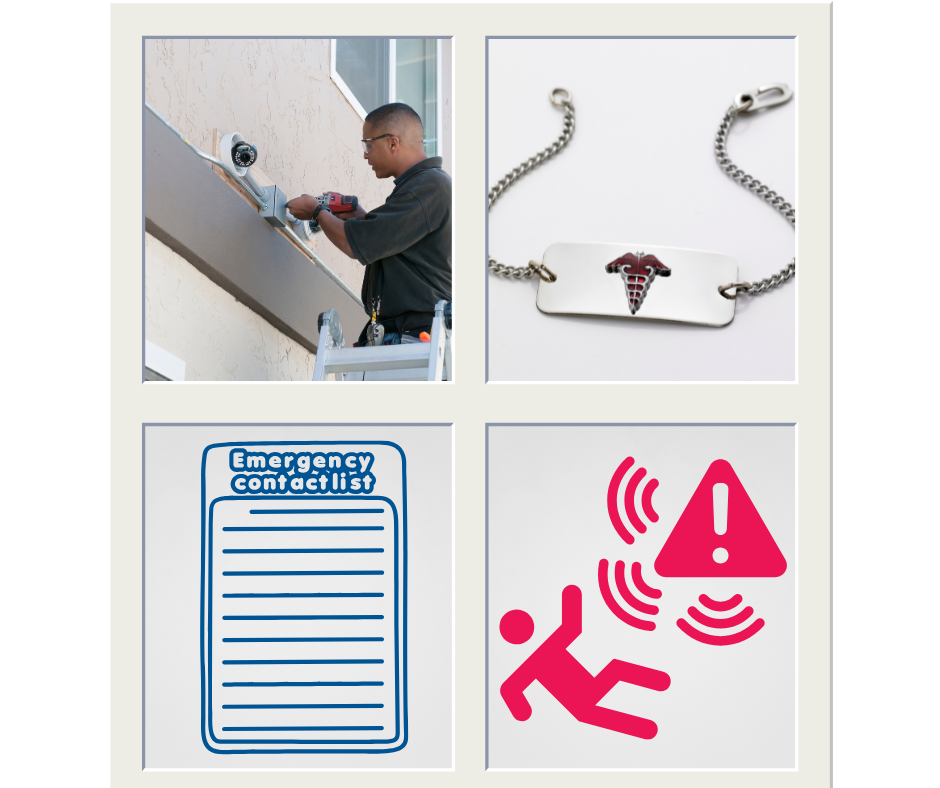
Stay Active and Eat Well: Vital for Health and Safety
Keep Moving: Seniors who fear falling may limit their activities, which can lead to muscle weakness and reduced flexibility—both of which increase the risk of falling. Staying active helps maintain strength and flexibility, which are key to preventing falls.
Stay Hydrated: Dehydration can lead to dizziness, fainting, and low blood pressure, which increase the risk of falling. It’s important to drink plenty of fluids throughout the day, especially since some medications can contribute to dehydration.
Eat Nutritious Meals: A balanced diet is essential for seniors. Nutrient deficiencies can lead to bone loss, weakness, and increased vulnerability to falls. Eating regular, well-balanced meals provides the energy and nutrients your body needs to stay strong and healthy. Local services, such as Meals on Wheels, can help provide nutritious meals for folks needing help with meal preparation.
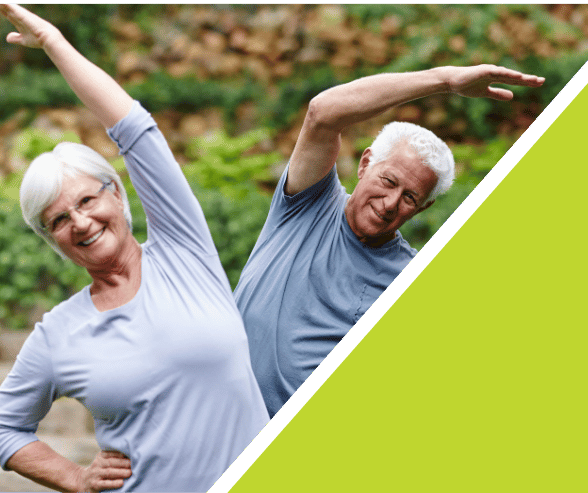
Mobility Aids: Let’s Keep You Moving
Assistive Devices: If needed, use canes, walkers, or other mobility aids. Make sure these devices are in good condition, properly fitted, and easy to reach when needed.
Accessible Spaces: Ensure that doorways and hallways are wide enough to accommodate mobility aids. If necessary, install a ramp to make moving around the home easier.
Speak Up: If you need accommodations, such as an accessible parking permit, don’t hesitate to discuss it with your healthcare provider.
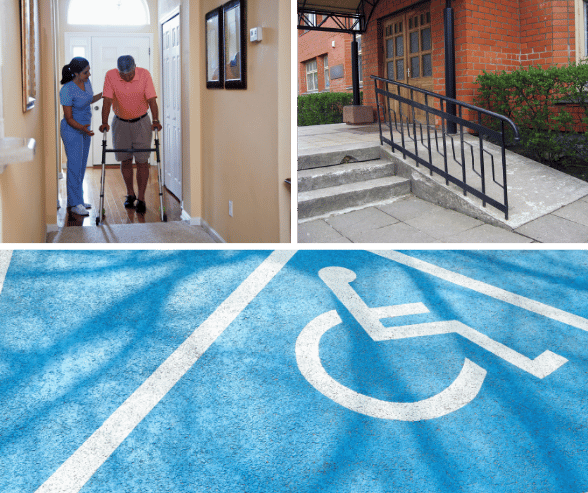
Temperature: A Hot Topic
Older adults are particularly vulnerable to extreme temperatures, whether hot or cold. As we age, our bodies lose some of their ability to regulate temperature, which increases the risk of heat-related illnesses or cold-related injuries.
Thermostat Control: Ensure your home is kept at a comfortable temperature year-round. Seniors are especially susceptible to both extreme heat and cold.
Space Heaters: If using space heaters, ensure they have safety shut-off features to prevent fires.
Dress Properly: Wear appropriate clothing to protect yourself from the cold, such as layered clothing, hats, and gloves in winter. In warmer weather, ensure you are protected from the sun with proper clothing and sunscreen.

Medication Management: Stay on Track
Managing medications is essential to staying safe and healthy at home:
Organize Medications: Use pill organizers to keep track of your medications, and ensure they are stored safely and accessibly.
Label Medications Clearly: Ensure all medications are clearly labeled, and check for potential interactions or side effects that could affect your safety.
Regular Cleanouts: Dispose of expired or discontinued medications at your local pharmacy to keep your medicine cabinet organized and safe.
Consult a Pharmacist: If you take multiple medications, consider asking your pharmacist for a medication review. In Ontario, this service is covered by OHIP for eligible residents.

Ask for Help: Building a Support Network
Older adults can be more prone to social isolation, which can lead to mental health issues, such as depression or anxiety. Having a support network can help you feel connected and ensure you have assistance when needed.
Conclusion: Prevention is Key for Home Safety
Stay Connected: Stay socially engaged by joining local community groups or activities, such as church groups, senior centers, or volunteering opportunities.
Support Network: Don’t hesitate to ask for help. Whether it’s from family, friends, or a home care service, reaching out for support helps you live more comfortably and safely in your own home.
Consider Home Care: Home care services can assist with daily tasks, personal care, medication management, companionship, and healthcare support in the comfort of your home.
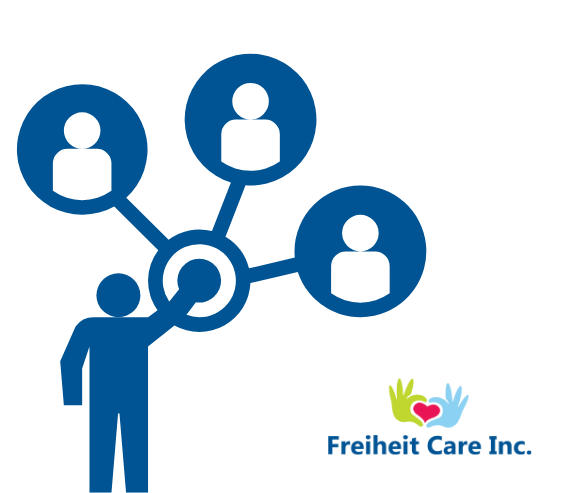
As the old saying goes, “An ounce of prevention is worth a pound of cure.” By inspecting your home and making small adjustments, you can greatly reduce your risk of falls and injuries. Implementing these safety tips will help you create a comfortable, secure environment where you can enjoy living independently for many years to come.
Home Safety Resources:
For more resources on home safety for seniors, check out the following:
Stay safe, stay healthy, and enjoy the comfort of your home!
